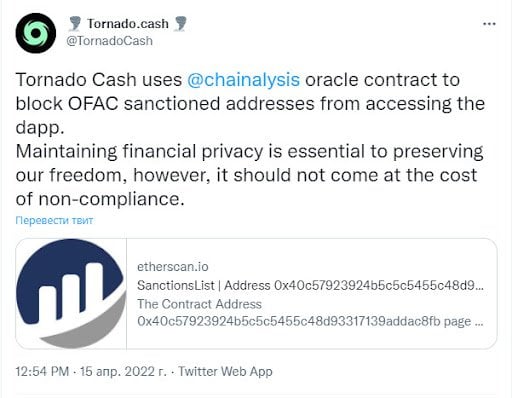The life of web scammers and hackers can become much more difficult. As far as they often used the Tornado Cash Ethereum service to “mix” transactions, it created a criminalized media image of the Tornado mixer itself.
The Tornado Cash team decided to put an end to this by announcing that it will begin blocking wallets that are under OFAC (Office of Foreign Assets Control) sanctions.
The company’s position looks like a manifest:
While financial privacy provides true freedom, it should not occur at the expense of non-compliance with laws.
Crypto wallets, which will be violators, will be tracked using the Chainalysis oracle contract. This service provides real-time scanning results of a list of addresses that fall under the government sanctions.
Cryptocurrencies are as private as they are transparent. It is to this feature that Michael Gronager, CEO of Chainalysis, appeals. People can maintain a comfortable degree of incognito, but without abusing it as a way to evade legal restrictions.
The smart contract is free, so sanctions screening will not encumber users with costs.

Locks will only apply to the user’s decentralized application, and not to the main smart contract which is the basis of Tornado Cash. It is technically impossible to impose sanctions on a smart contract. This was stated by one of the founders of the company, Roman Semenov.
Previously, the FATF (Financial Action Task Force) published regulations regarding virtual asset service providers. It follows from the document that, regardless of the degree of decentralization of the project, its organizers or managers are obliged to provide the system with mechanisms for monitoring compliance with regulatory standards, including sanctions.
In this light, the steps taken by the project in relation to toxic addresses look like a direct reaction.




